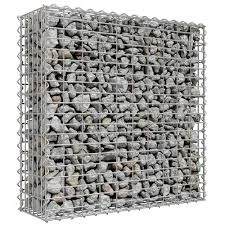
Sep . 28, 2024 04:25 Back to list
Different Varieties of Field Fencing for Agriculture and Livestock Management
Types of Field Fencing A Comprehensive Guide
Field fencing is an essential element in agriculture and livestock management. It serves various purposes, from keeping animals contained to protecting crops from wildlife. Choosing the right type of fencing can enhance farm efficiency, ensure animal safety, and minimize damage. Here, we explore several common types of field fencing, discussing their benefits and ideal applications.
1. Barbed Wire Fencing
Barbed wire is one of the most traditional forms of fencing, long favored for its affordability and effectiveness. It consists of a series of twisted wires with sharp barbs spaced along the strands. This type of fencing is particularly effective for containing livestock such as cattle and horses. Barbed wire discourages animals from attempting to breach the fence due to the potential injury from the barbs. However, it may not be the best choice for smaller animals like sheep or goats, as they can easily get tangled in the wire.
2. Electric Fencing
Electric fencing has gained popularity in recent years due to its versatility and ease of installation. This type of fencing uses a controlled electrical charge to deter animals from crossing the boundary. It can be an excellent option for both large and small livestock since the shock serves as a strong deterrent without causing serious harm. Electric fencing is often used in temporary setups, allowing farmers to rotate grazing areas and manage pasture effectively. However, it's essential to ensure the fencing is well-maintained to avoid malfunctions.
Welded wire fencing is another robust option for field fencing. Made of vertical and horizontal wires that are welded together, this type of fencing offers durability and strength. It is ideal for containing animals, including goats, sheep, and pigs. Welded wire fencing provides a physical barrier that prevents animals from escaping or entering unwanted areas, making it suitable for gardens and orchards as well. While it may come at a higher cost compared to barbed wire, its longevity and stability can make it a worthwhile investment.
types of field fencing

4. Stock Fencing
Stock fencing is specifically designed for keeping livestock contained. It combines wire strands with horizontal reinforcements, creating a fence that is effective in keeping animals in while deterring wildlife. This type of fencing is typically lower than traditional barbed wire but provides enough of a barrier for animals like sheep and cows. Stock fencing is easy to install and is often used in combination with barbed wire on top for added security.
5. Chain Link Fencing
Though less common in rural settings, chain link fencing is sometimes employed for field applications. It is particularly useful in residential areas or smaller gardens where visibility and security are priorities. Chain link fencing provides a durable, low-maintenance option that is resistant to rust and corrosion. It can be used to protect livestock from predators while allowing visibility into the area. However, it might not be the best choice for larger pastures due to cost considerations.
6. Wood Fencing
Wood fencing is a classic choice that offers aesthetic appeal in addition to functionality. It can be more expensive than other options; however, its complete enclosure capabilities and natural look make it desirable for many farms. Wood fencing is effective for containing livestock and protecting gardens but requires regular maintenance to prevent rot and degradation.
Conclusion
When selecting the right type of field fencing, it is vital to consider factors such as the types of animals you are managing, the terrain of your land, and your budget. Each fencing option has its advantages and disadvantages, making it crucial to assess your specific needs. Regardless of the choice, proper installation and upkeep will ensure your fencing system remains effective and long-lasting, creating a safe environment for both livestock and crops.
-
build-a-discreet-chicken-run-with-sturdy-green-coated-chicken-wire
NewsAug.23,2025
-
a-guide-to-selecting-the-most-durable-field-gates-for-your-property
NewsAug.23,2025
-
green-mesh-fencing-rolls-offer-versatile-solutions-for-diverse-needs
NewsAug.23,2025
-
chain-fence-for-durable-and-versatile-enclosure-solutions
NewsAug.23,2025
-
garden-edging-fence-for-functional-and-decorative-landscaping
NewsAug.23,2025
-
3d-wire-mesh-fence-for-versatile-security-and-decoration
NewsAug.23,2025
Products categories











